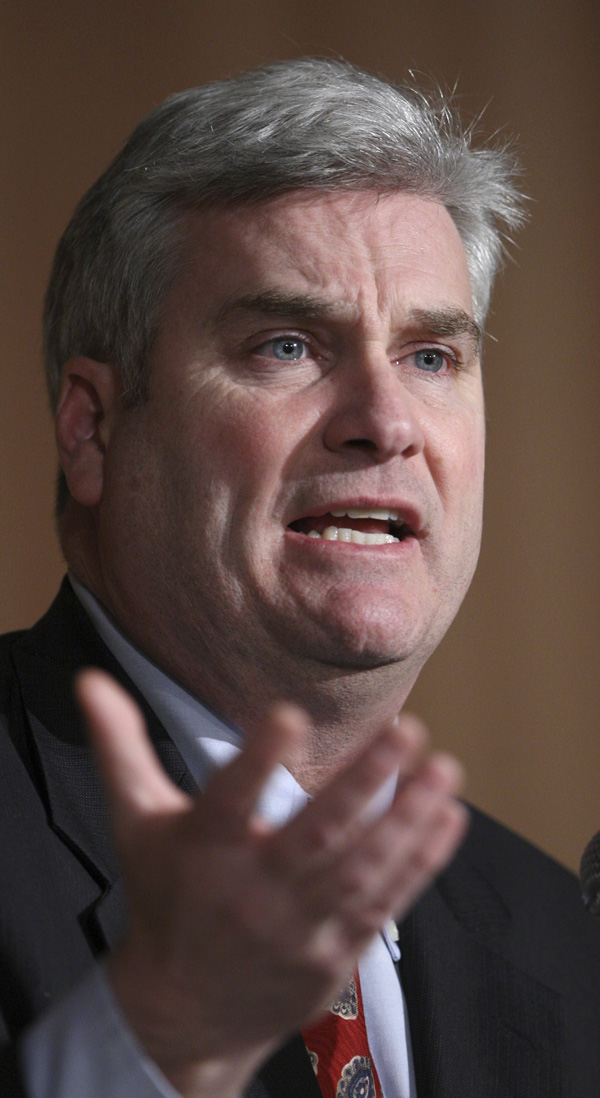Minnesota state Rep. Tom Emmer, the presumptive Republican nominee for governor, has further expounded on his theories of nullification, declaring that states have the power under the Constitution to undo federal legislation.
There’s one problem that Emmer and other nullifiers — or to use a modern term from the blogosphere, “Tenthers,” after the Tenth Amendment — would face: State nullification of federal laws has consistently been found to be unconstitutional throughout this country’s history.
MinnPost asked Emmer about his support for a proposed state constitutional amendment that would presumptively nullify all federal laws in the state of Minnesota, declaring that they only take effect if the governor and two-thirds of each House of the Minnesota legislature were to sign off.
Interestingly, Emmer minimized his role in that proposal, saying that he was only a co-sponsor. Instead he pointed to a different proposal, of which he is the chief author, which would provide an alternative avenue for the state to reject federal laws.
Under Emmer’s proposal, no federal mandate upon the state would be honored by Minnesota unless the governor, Speaker of the state House and state Senate Majority Leader were to issue determinations that the federal government has the power to legislate in that area. If any of those three officials were to determine that the federal government does not have the relevant power, the mandate could not take effect unless the legislature passed a law specifically applying it.
MinnPost pointed out to Emmer that this idea runs afoul of the Supremacy Clause of the Constitution, which established that federal laws are the “supreme Law of the Land” to which states are bound. It was only noted that Emmer’s method skips the traditionally accepted manner for states to challenge a federal law, to file a lawsuit and adjudicate the matter in the courts. Emmer responded that this is the “preferred mechanism by some. That is usually federal-leaning constitutionalists.” But he said the states shouldn’t wait for courts to determine the scope of the federal government’s authority.
“So while I appreciate that some might say that is the mechanism, well, that is one of the mechanisms,” said Emmer. “I think if you’re going to talk about a constitutional legal question. I’m taking about taking it from whether or not the authority is there in the first place. [Meaning the constitutional authority for the federal government to legislate in a particular area]. The state certainly does have the right to determine that at the state level, I believe, under our existing constitution.”
It should be noted that theories of nullification were often floated during the first several decades of the United States, by individual states having disputes with the federal government over issues ranging from slavery to tariffs — but the Civil War and the Northern victory over Southern secession firmly established the supremacy of the federal government. Nullification was later invoked by Southern segregationists during the Civil Rights movement, and was consistently rejected in federal courts.






